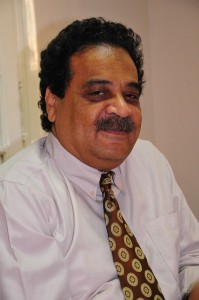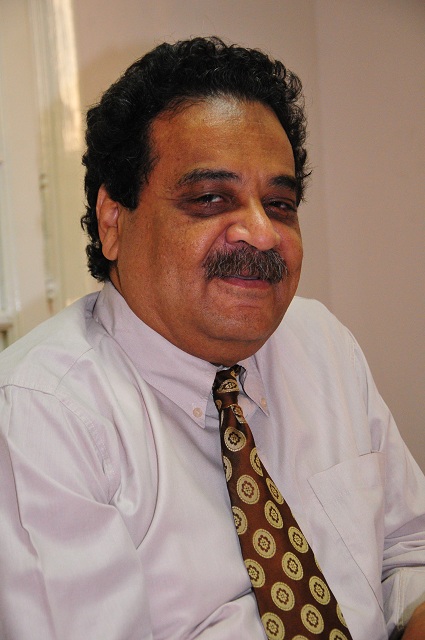 A terrorist group demanded that Christian families leave the North Sinai town of Rafah. The government quickly carried out these orders sending all Christian employees of Rafah to work in Al-Arish and relocating their children to Al-Arish schools.
A terrorist group demanded that Christian families leave the North Sinai town of Rafah. The government quickly carried out these orders sending all Christian employees of Rafah to work in Al-Arish and relocating their children to Al-Arish schools.
The incident could have ended there, but fate decreed that the story be leaked to political circles. Many of them hurried to issue statements condemning what they described as “forced displacement of Christians.” Also Bishop Pachomius, head of the Coptic Orthodox Church of Alexandria since the death of Pope Shenouda III in March, in an unprecedented development, issued a toughly-worded statement denouncing these incidents.
All these remarks held the state responsible for the matter. The remarks implicitly called for bringing all displaced Copts back to their homes and providing them with protection and security. Therefore, as a result of mounting pressures, the state bodies, according to alleged presidential orders, started to react. The government called off all the employee secondment decisions in a few hours, just in the way they were issued.
Security reinforcements were deployed in Rafah and the displaced families were contacted to return to their homes. But there was a surprise that shocked many people, excluding me, which is that Copts themselves opposed the cancellation of their secondment decisions and insisted on staying away from Rafah because they feared what would happen to them after the security forces pulled out from the city and the officials disregarded the whole issue.
It was not a surprise for us that Bishop Kosman of the dioceses of North Sinai said that matters are going well in the city. The families are afraid for their sons and the bishop is also. “The one with hands in water not like the one with hands in fire,” as the proverb sa
Several months ago, Bishop Pachomius paid a visit to the headquarters of the Muslim Brotherhood and met with its Supreme Guide. Many observers were shocked by the visit because it is well-known that the norms and traditions of the Egyptian church only allow the Pope to get out of the papal residence to meet the head of the state, sultan, king or president or to visit Al-Azhars’ grand Imam to exchange greetings with him in religious feasts and occasions.
Why did the Pope make that unprecedented visit to the group leader, a visit that put him under fire from circles of Copts and politicians?! I think what prompted Pachomius to confer with the Supreme Guide of the Islamic group is the same reason that made the Paterfamilias stand firm on fleeing Rafah and made the Sinai bishop trivialise the matter.
It is simply the fear not only for oneself but for others who may be harmed due to a decision taken by one person. It is a legitimate fear; the head of the family fears for his/her sons, the bishop fears for his congregation and the pope fears for ordinary Copts dispersed all over Egypt.
From the beginnings of the sectarian tensions and disturbances in 1970s, any escalation that may lead to a clash resulting in massacres has been deflected by the Church leadership. Amid the presence of religious groups that have been supported by the security state bodies, massacres could break out in response any reaction to anti-Coptic violence.
We did not see any Christian resistance to the forced migration because defiantly staying in Rafah meant implicitly struggling against the oppression, in other words, Copts preferred staying in safety and leaving Rafah to staying with their properties and living in danger.
The difference between the two options is that the first will not lead to escalation and clashes, while the second will result inevitably in escalation and violence because those terrorists were serious in their threats. It was not expected and logical that Copts, if they stayed, would not respond to any attacks against them in a way that may trigger sectarian disturbances and result in massacres.
In this atmosphere in which the state is absent or colludes with militants, and horror spreads, the rate of sectarian sorting and displacement increases, villages in Upper Egypt inhabited only by Christians or with a Copt majority will come to existence and a feeling of non-affiliation to a nation, whose leader conveys his political messages from mosques after Friday prayers, deepens!
But what is new in the Rafah incident is that the migration of the Christians was not this time because of an actual oppression or attack but as a result of threats, prompting the Copts to flee not only from Rafah but also from all Egypt if they have the ability to do so. The migration rates of well-off Copts going abroad significantly increase amid mounting concerns which are confirmed by many incidents including what is happening now in Rafah, but what about badly-off Christians who are obliged to stay in Rafah or Al-Arish?!
And who will guarantee that life in Al-Arish will be better than that in Rafah? And will the Islamic groups in Al-Arish will be less faithful than those in Rafah to allow the Copts to stay. Is the state helpless or is it connivance? Is helplessness in this situation considered ‘connivance’ or ‘weakness’? And how can the state conspire in such matter? Where were the army and police to stand up to the Jihadist groups in Sinai when these groups carried out a massacre against the Egyptian troops several weeks ago? Many questions are looking for answers which we will provide in another article, inshallah.




